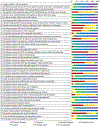Development and preliminary testing of the collaboration for leadership and innovation in mentoring survey: An instrument of nursing PhD mentorship quality
- PMID: 33465679
- PMCID: PMC7924009
- DOI: 10.1016/j.nedt.2021.104747
Development and preliminary testing of the collaboration for leadership and innovation in mentoring survey: An instrument of nursing PhD mentorship quality
Abstract
Background: High-quality PhD nursing student mentorship facilitates student and program success. Extant literature recommends evaluating and improving mentorship to foster optimal PhD student development. However, a comprehensive measure capturing all aspects of mentorship salient to PhD nursing student wellbeing and success is not available.
Objectives: The purpose of this pilot study was to develop a new instrument - the Collaboration for Leadership and Innovation in Mentoring (CLIM) - for quantifying important components of PhD student mentorship in nursing, and to preliminarily test its psychometric properties (content validity, sensitivity, test-retest reliability).
Design: The study employed a cross-sectional design.
Setting: The CLIM instrument was administered to nursing PhD students at a public state university in the United States.
Participants: Sixteen nursing PhD students at various stages in their degree progression completed the instrument.
Methods: PhD nursing students developed unique items based on qualitative data collected by the University using an Appreciative Inquiry framework. Seven nursing and non-nursing experts with experience in PhD mentorship evaluated content validity. After revisions, the final 44-item instrument was administered at two time points (one month apart) to allow assessment of test-retest reliability. Test-retest reliability was evaluated using Spearman-rank correlations and data from students with ≥1 year of experience with their mentor.
Results: Response rates were 94% for both administrations (n = 16). The instrument's overall Content Validity Index (CVI) was 0.91 (p = 0.05). Test-retest analyses resulted in high correlations (r = 0.91, p < 0.001), further supporting reliability of the CLIM instrument.
Conclusions: Preliminary evidence suggests that the CLIM instrument is a reliable instrument of PhD mentorship in nursing. However, additional testing in larger and more diverse graduate student populations is needed to evaluate internal consistency reliability, among other psychometric properties.
Keywords: Education, nursing; Mentors; Psychometrics; Surveys and questionnaires, PhD/doctoral.
Copyright © 2021 Elsevier Ltd. All rights reserved.
Figures
References
-
- Armstrong DK, McCurry M, & Dluhy NM (2017). Facilitating the transition of nurse clinician to nurse scientist: Significance of entry PhD courses. Journal of Professional Nursing, 33(1), 74–80. - PubMed
-
- American Association of Colleges of Nursing. (2019). 2019 Annual Report. Retrieved from https://www.aacnnursing.org/Portals/42/Publications/Annual-Reports/Annua...
-
- Berk RA, Berg J, Mortimer R, Walton-Moss B, & Yeo TP (2005). Measuring the effectiveness of faculty mentoring relationships. Academic Medicine, 80(1), 66–71. - PubMed
-
- Bagakas J, Bransteter I, Rispinto S, & Badillo N (2015). Exploring student success in a doctoral program: The power of mentorship and research engagement. International Journal of Doctoral Studies, 10, 323–342. 10.28945/2291 - DOI
MeSH terms
Grants and funding
LinkOut - more resources
Full Text Sources
Other Literature Sources


